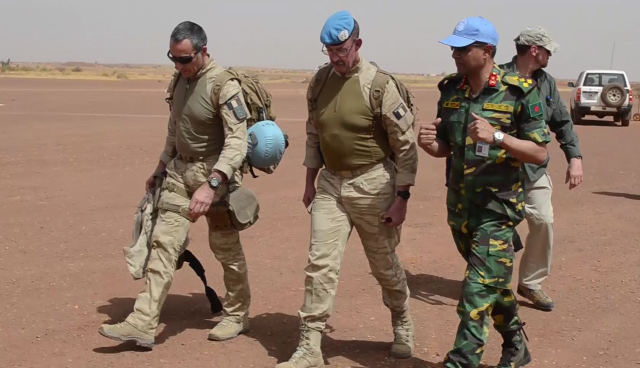In Mali, Mahamat Saleh Annadif, presented on Tuesday, July 17, the content of the new mandate of the UN mission that he is leading in the country. In particular, collaboration with the transnational force of the G5-Sahel is planned: two forces with “different but complementary” mandates.
“Like the Malian armed forces, we will develop the same kind of partnership with the G5-Sahel,” said Jean-Paul Deconinck, commander of the UN mission in Mali. Recognizing the limitations imposed by the mandate of the Minusma.
For General Deconinck, the direct support for the Malian armed forces will serve as “indirect support” for the G5-Sahel force. To this end, coordination mechanisms would already be in place. The same is true with Mahamat Saleh Annadif, special representative of the UN Secretary-General. “One does not exclude the other. The two complement each other,” said Annadif who “wishes that this force is deployed as quickly as possible and with the most resources possible”. Even if he wished to prevent: “We must not be mistaken. We must not believe that terrorism has been eradicated and that the Malian problem is solved (with the G5-Sahel, ed.). The Malian problem is a political problem that we have tried to resolve for years”.
Officially launched at the G5 summit in Bamako in early July, the force does not have the 420 million euros needed for its annual operation. The UN, shaken by the United States, is not going to put its hand in the pocket, at least for now. A donors’ conference is planned to complete the funds. The G5 countries hope that the Security Council will review its position after four months, after a first report by the UN Secretary-General.
Aboubacar Dicko

